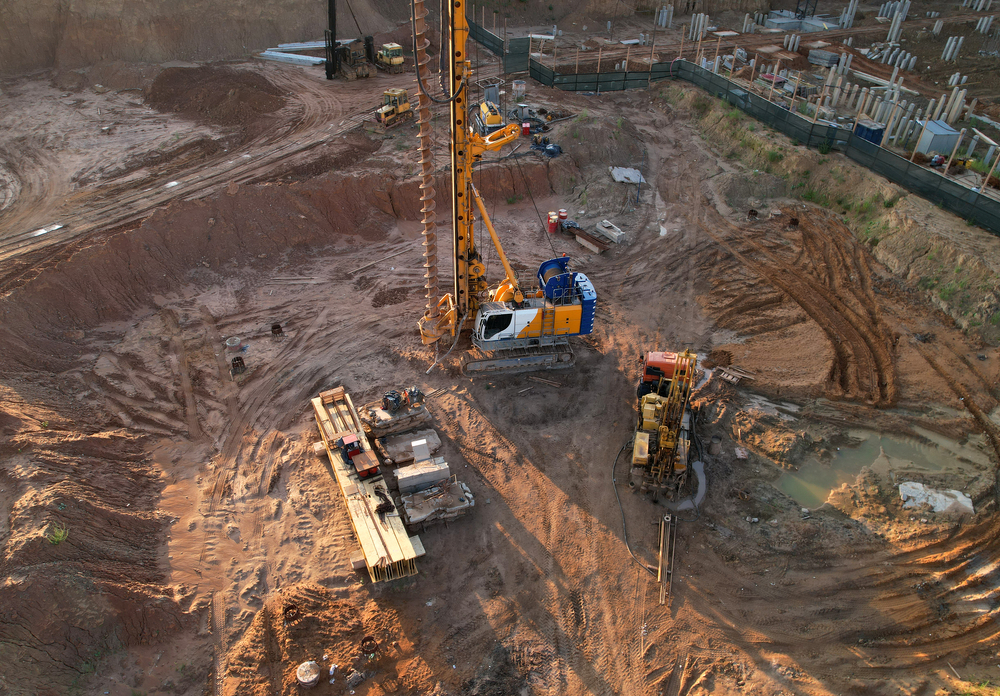Things about Geotheta
Things about Geotheta
Blog Article
Unknown Facts About Geotheta
Table of ContentsThe Greatest Guide To GeothetaSome Ideas on Geotheta You Need To KnowAll about GeothetaThe Best Strategy To Use For GeothetaThe Buzz on Geotheta

They conduct site investigations, collect samples, carry out lab examinations, and assess data to evaluate the viability of the ground for building and construction tasks - Tailings Engineer. Based upon their searchings for, geotechnical designers supply referrals for structure layout, incline security, maintaining frameworks, and reduction of geotechnical dangers. They team up with various other experts, such as designers, structural engineers, and building and construction groups, to make certain that geotechnical factors to consider are incorporated into the overall task layout and application
By examining the habits and homes of soil and rock, they can recognize prospective geotechnical risks such as landslides, soil negotiation, or incline instability. Their competence helps prevent failings or mishaps that might endanger lives and home. Here are some thorough tasks and responsibilities of a geotechnical designer: Site Examination: Geotechnical designers conduct site investigations to gather information on subsurface conditions.
They interpret the data to understand the homes and behavior of the soil and rock, including their toughness, leaks in the structure, compaction attributes, and groundwater conditions. Geotechnical Analysis and Design: Geotechnical designers assess the information collected throughout website investigations to evaluate the security and viability of the website for building and construction jobs. They carry out geotechnical calculations and modeling to assess variables such as bearing capability, settlement, slope security, side planet pressures, and groundwater flow.
Geotheta Can Be Fun For Everyone
Structure Design: Geotechnical engineers play a vital role in creating foundations that can securely sustain the designated framework. They evaluate the dirt problems and tons demands to establish the proper foundation type, such as superficial foundations (e.g., footings), deep structures (e.g (https://www.abnewswire.com/companyname/geotheta.com_139529.html#detail-tab)., heaps), or specialized techniques like dirt renovation. They consider elements such as settlement restrictions, birthing ability, and soil-structure communication to create ideal foundation designs
They assess construction strategies, display site tasks, and carry out area evaluations to confirm that the design recommendations are adhered to. If unpredicted geotechnical issues arise, they examine the situation and offer recommendations for remediation or changes to the design. Risk Evaluation and Mitigation: Geotechnical engineers analyze geotechnical hazards and threats linked with the task site, such as landslides, liquefaction, or dirt erosion.

Collaboration and Communication: Geotechnical designers work carefully with various other specialists entailed in a job, such as designers, architectural designers, and building groups. Effective communication and cooperation are necessary to incorporate geotechnical considerations right into the overall task style and construction procedure. Geotechnical designers offer technical experience, solution queries, and ensure that geotechnical needs are satisfied.
Rumored Buzz on Geotheta
Below are some kinds of geotechnical designers: Structure Designer: Structure designers focus on creating and assessing structures for frameworks. They analyze the dirt problems, lots requirements, and website attributes to figure out the most suitable structure type and design, such as shallow foundations, deep foundations, or specialized techniques like heap structures.
They examine the aspects affecting incline security, such as soil properties, groundwater problems, and incline geometry, and create methods to stop slope failures and reduce risks. Earthquake Designer: Earthquake engineers focus on evaluating and designing frameworks to stand up to seismic pressures. They examine the seismic risk of a site, review soil liquefaction capacity, and develop seismic layout requirements to ensure the safety and security and strength of structures during earthquakes.
They perform area testing, collect examples, and analyze the collected information to characterize the dirt residential properties, geologic formations, and groundwater problems at a site. Geotechnical Instrumentation Engineer: Geotechnical instrumentation engineers concentrate on monitoring and gauging the habits of dirt, rock, and structures. They mount and preserve instrumentation systems that check aspects such as soil settlement, groundwater degrees, slope activities, and structural displacements to analyze performance and supply early warnings of possible issues.
The Geotheta PDFs
They carry out examinations such as triaxial tests, loan consolidation tests, direct shear tests, and leaks in the structure examinations to collect information for geotechnical analysis and design. Geosynthetics Engineer: Geosynthetics engineers specialize in the style and application of geosynthetic products, such as geotextiles, geogrids, and geomembranes. They utilize these products to improve dirt security, strengthen slopes, provide drain remedies, and control disintegration.
They often tend to be investigatory people, which means they're intellectual, introspective, and curious. They are curious, systematic, sensible, logical, and sensible. Some of them are also social, suggesting they're kind, generous, participating, patient, caring, useful, empathetic, tactful, and pleasant. Does this audio like you? Take our cost-free job examination to learn if geotechnical engineer is one of your top career suits.
In the workplace atmosphere, geotechnical designers use specialized software application tools to execute computations, produce styles, and analyze information. They prepare reports, review job specifications, connect with clients and employee, and coordinate project tasks. The office setup offers a helpful atmosphere for research, evaluation, and partnership with various other experts entailed in the job.
What Does Geotheta Do?
They frequently check out task sites to carry out website examinations, assess geotechnical conditions, and collect information for evaluation. These check outs entail taking a trip to different locations, often in remote or tough surfaces. Geotechnical engineers might execute soil sampling, conduct examinations, and display construction activities to make sure that the geotechnical facets of the task are being implemented properly.
Geotechnical designers additionally function in specialized geotechnical research laboratories. Geotechnical laboratory engineers function extensively in these settings, taking care of screening devices, operating instruments, and recording information.
Report this page